A Quest for Affordable Health Care: MCSJ and Partners March to Parliament to Demand a Rapid Implementation of Government’s National Health Insurance Scheme
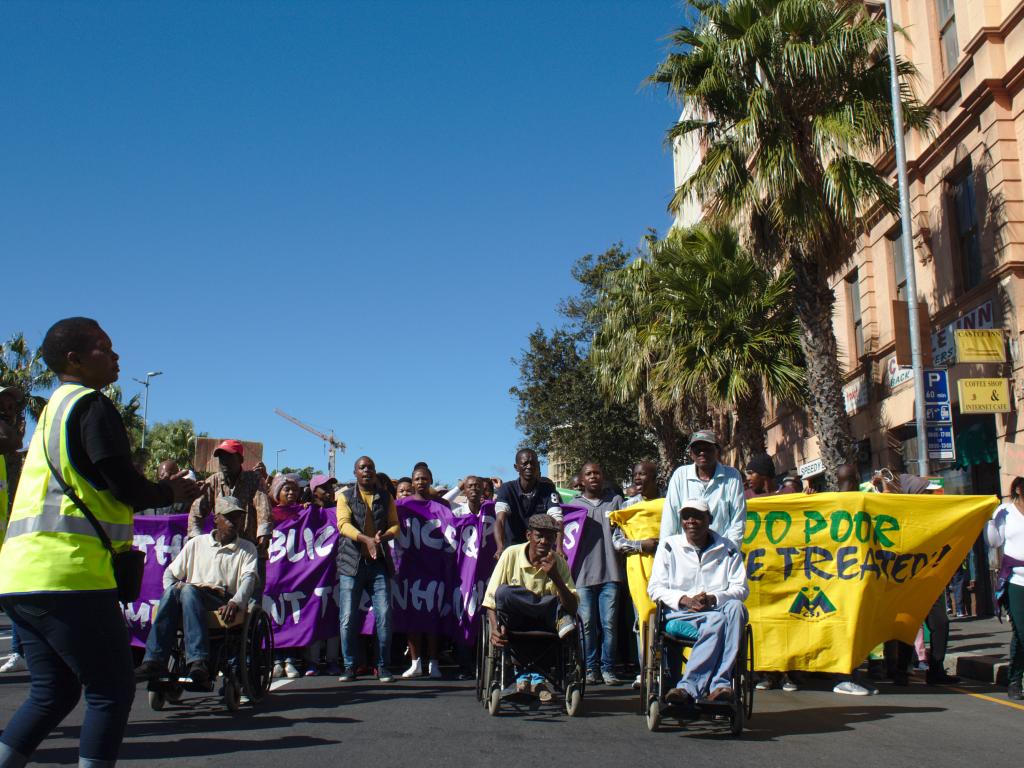
Myrna van Pinxteren (Researcher, UCT); Zara Trafford (Research Fellow, UCT)
Editorial Note: The authors and contributors work and conduct research in several community engagement projects linked to DSBS. Together, they support long- and short-term campaigns in Gugulethu, Khayelitsha and other communities in Cape Town. In this article, the authors share their experiences of participating in a march demanding the rapid implementation the proposed National Insurance Health (NHI) scheme, organised by the Movement for Change and Social Justice (MCSJ) in April 2019.
On a hot April day, we travelled on the N2 highway from the University of Cape Town towards District Six. We were excited and honoured to be participating in a march led by the Movement for Change and Social Justice (MCSJ), a grassroots social movement that we all work to support and capacitate. The march was focused on highlighting the inequalities in the public health care system in South Africa. Its central demand was that the government rapidly implement the National Health Insurance (NHI) scheme, which has been in its pilot phase since 2016.

NHI is a financing system focused on ensuring “universal health coverage” or UHC for South Africa, which means that each person in the population would be financially protected when seeking health services. The NHI would be funded by taxes and organised by government. Although everyone living within South Africa’s borders already has (mostly free) access to the state-provided public health care facilities, these services are notoriously overloaded, undersupplied, and understaffed. For example, more than 60% of the country’s resources for health go toward private health services that can only be accessed by less than 20% of the country’s population. Public health facilities in South Africa are slowly becoming better equipped to comply with the demands for this new system that eventually will merge private and public health facilities into an integrated health care approach. Health workers operating exclusively in the private sector would also be encouraged or required to provide (government-subsidised) services in public sector facilities. People would be able to access these services at no cost or a very low fee. The system would operate in a similar way to the existing medical aid schemes concept, but financial support would come from government rather than a private health insurance company. Although according to policy drafts the NHI would be available to anybody who is a citizen or permanent resident, the NHI is primarily aimed at bridging the gap between the private and public sectors to share the country’s existing resources more equitably. The roll out of the NHI is also supposed to have been paired with the process of “reengineering primary health care (PHC)”, which is focused on improving the actual service provision at public health sector facilities in recognition that financing is only one part of the difficult journey toward fair, high-quality service provision.
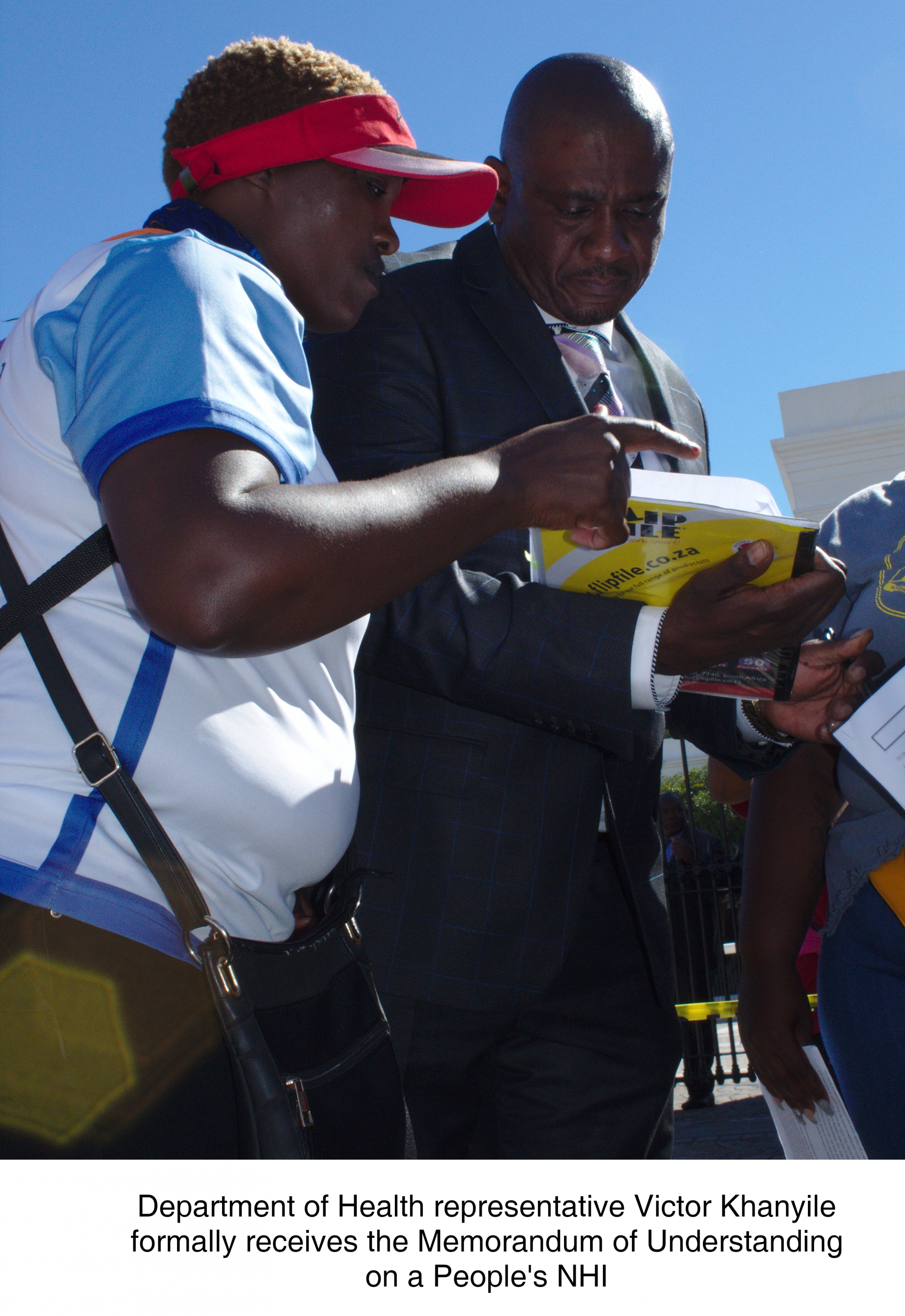
Plans for the NHI have been under way for about seven years but have repeatedly stalled and there is ongoing disagreement about the specifics of its implementation. Academics and activists fear that politicians are using NHI plans as political rhetoric (rather than an actual commitment), and that the process of rollout is at risk of being either squashed or “captured” by the powerful private sector. There is also little feedback about the “PHC reengineering” process that was supposed to be focused on improving existing service delivery. Various groups have mobilised to push for faster implementation and maintaining a focus on those who are currently catastrophically underserved. “The ideas are great, but it is not going fast enough” says Mandla Majola, MCSJ co-founder and one of the key organisers of the recent NHI march. “Those who can afford insurance are lucky and get private health care, but most of the people living in townships still rely on public health services. The queues are too long, there are regular medication stockouts and too little beds in the wards. We need to show that health care is a basic human right for all, not only for those with money.”
To amplify this message, MCSJ marched through the streets of Cape Town with more than six hundred community members to hand over a memorandum of understanding (MoU) to Health Minister Dr Aaron Motsoaledi. The MoU detailed grievances about their communities’ poor access to health services, mismanagement, and the lack of staff in public health facilities. Victor Khanyile, a human resources director in the Department of Health, spoke to the crowd about the status of the NHI and expressed his support for the concerns of the protesters. He said that it was necessary to “put pressure on our political heads and ourselves, as administrators to uphold and lift toward the importance of implementing all the issues that are requested by the public”. He concluded by agreeing that informative roadshows should be rolled out urgently but that the government’s focus should be on “the people – because this is the NHI for the people”. He assured the crowd that the Minister would receive and respond to the memorandum shortly.

Prior to the protest march in the centre Cape Town, MCSJ members also picketed outside ten different private clinics in the greater Cape Town area where small groups of protesters brought a select number of sick patients in need of care. Mandla explained that although they “knew that the private hospitals are not allowed to admit or treat patients without insurance, we did want to showcase the inequality of services and raise awareness for our cause”. Even though the staff at the private clinics could not help the patients, they were sympathetic, understood the issues that MCSJ tried to raise, and were respectful towards the protesters. “It was a bit scary to protest in front of the private clinics, but it went surprisingly well”, said MCSJ secretary Tantaswa Ndlelana. She continued, “the nurses were really friendly and sympathised with our cause. We also developed special pamphlets to inform them, which was helpful.” This is representative of MCSJ’s previous approaches to raising grievances. The movement tries to use a collaborative and (ideally) non-combative approach by bringing providers, policy-makers, and community members together toward mutual understanding of each other’s needs, constraints, and capacities.
The date for the march, held a few weeks before the National Election on the 8th of May 2019, was strategically chosen. Although the march was timed to coincide with political lobbying for votes, MCSJ has been discussing and attempting to address persistent challenges that face the public health system since the movement’s formation in 2016. MCSJ aims to be responsive to local needs and at their regular community meetings, MCSJ members had raised the issue of being uninformed about NHI-related policy and associated timelines, ambiguous guidelines for clinics, and the practical implications of the NHI for patients in Gugulethu and surrounding neighbourhoods. Planning for the march officially started in early 2019. Extensive time and energy went into fund-raising, training was provided by the Peoples Health Movement-South Africa (PHM-SA) through the People's NHI campaigns, which stresses the importance of putting people before profit. The campaign, developed in collaboration with other local health activism organisations, demands the improvement of, among other things, community participation, social solidarity, and equity. MCSJ worked closely with its collaborative partners, including DSBS, PHM-SA, and others, to ensure that the protest march was well-organised and inclusive. The protest was also set up to actively include disabled, elderly and marginalised community members and was shepherded by the local Neighbourhood Watch, and received friendly support from the South African Police Service (SAPS). This hard work paid off and hundreds of community members and comrades danced, sang, and walked from District Six to parliament in peace – to raise awareness about the importance of implementing the NHI and progressing toward equal access to quality health care, for all.
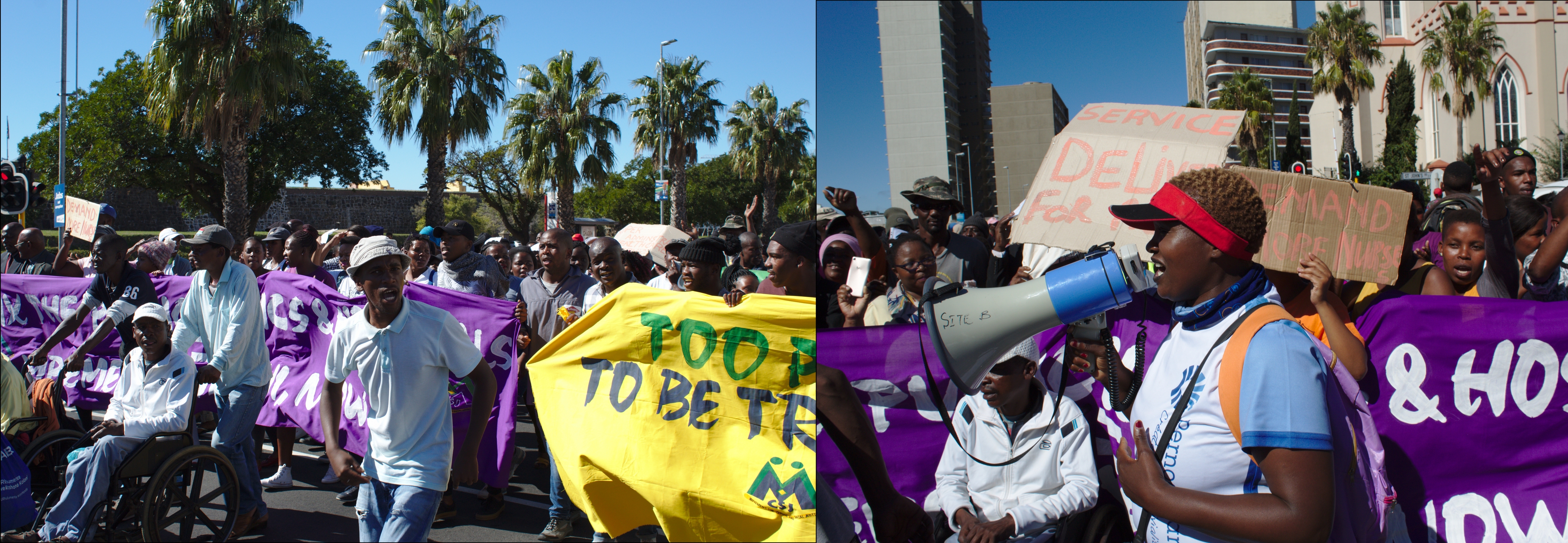
|
DSBS Staff Describe Their Experiences Participating in the NHI March Myrna van Pinxteren: I have been working with MCSJ since they started in 2016 and I was extremely honoured to be part of the march and of the logistic planning. Preparing for such a big event can be confusing and chaotic at times but to be part of the crowd walking peacefully through the streets of the Mother City for this important cause was exceptional. Zara Trafford: Public marches are an important way for people whose voices are often ignored to draw attention to issues that demand government attention. I was really impressed by how smoothly the march went, people’s high energy despite their long day of travel, and the focused attention people gave to the speakers. I hope MCSJ goes from strength to strength – we need more voices like theirs, as a grassroots movement focused on demanding sustainable and equitable change, active citizenship, and collaborative problem-solving. Namhla Sicwebu: The march helped highlight the importance of conscientising our communities about things that affects us all and opening spaces for South Africans to practice responsible citizenship. On the 24th of April, as we made our way to parliament, the unity, courage and strength that I observed amongst the attendees was electrifying. I know that the march was the start of something big; that the seeds that were sown that day will produce good fruits that will get us closer to the implementation of the NHI. Nonzuzo Mbokazi: I had the opportunity to provide administrative support to MCSJ for the NHI march, and this was extremely enlightening. Although I was aware of the broader debate regarding the need for ‘Health for All’ as suggested by NHI, working closely with the organisation provided me with an understanding of the lived experiences of those who struggle to receive quality health care. I have been able to understand that when we would achieving ‘Health for All’, our country would make a stride towards addressing the conditions of structural violence that the majority of our population are faced with, and subsequently the disparities in health care provision. |
Author Biographies
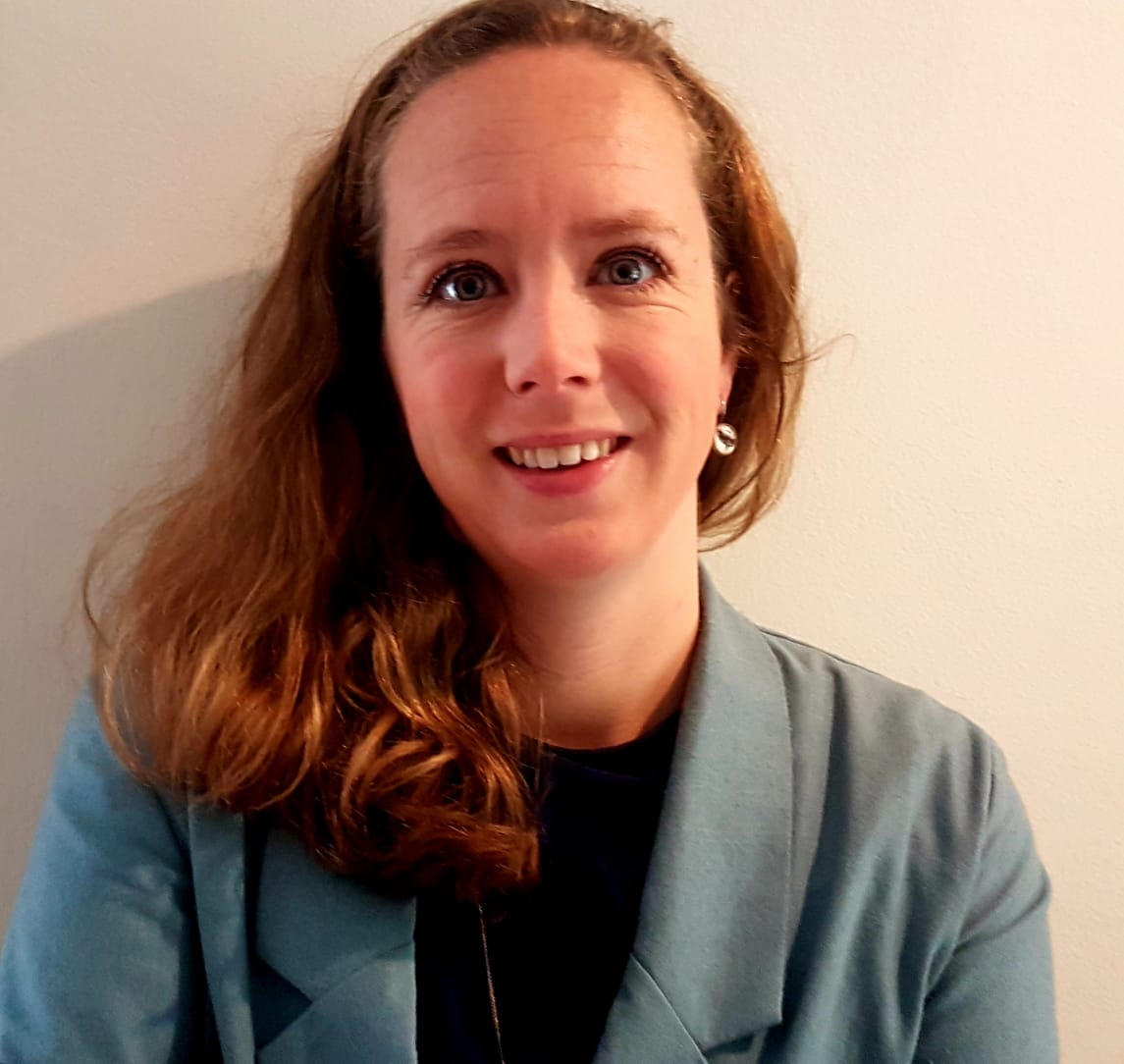
Email: myrna.vanpinxteren@gmail.com
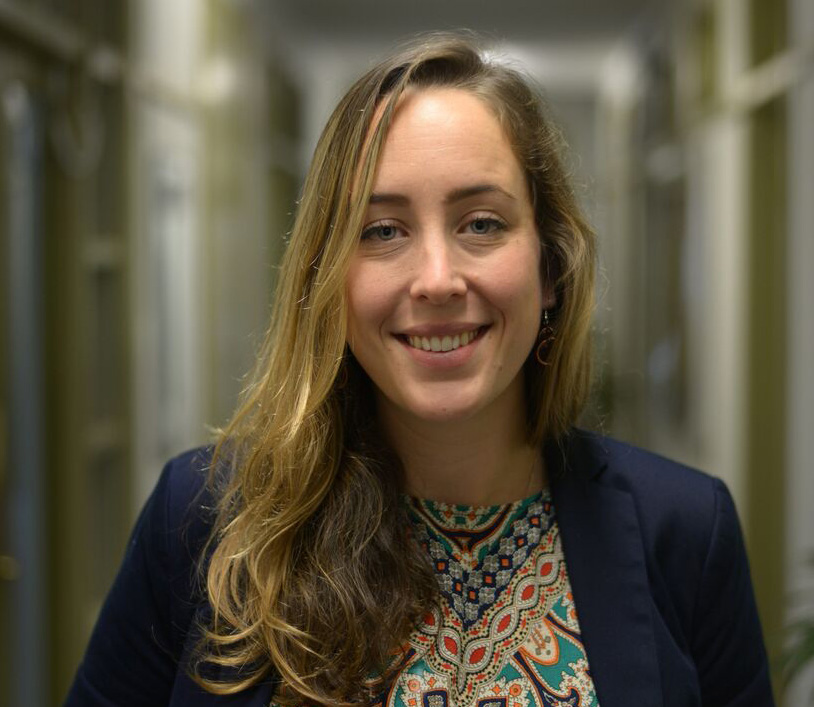
Email: zara.trafford@uct.ac.za